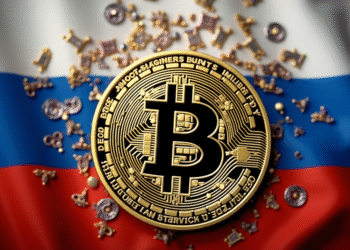The Polymarket TikTok ban controversy has sparked significant debate within the prediction market community, with users expressing outrage over the platform’s recent decision to resolve a market regarding the banning of TikTok in the U.S. to “Yes.” This resolution, made on January 20, came just after the U.S. Supreme Court upheld the ban, leading many bettors to question the integrity of Polymarket’s dispute resolution process. Accusations of manipulation have surfaced, as the market’s trading volume reached an impressive $120 million, with users feeling misled about the app’s operational status. The incident highlights the complexities and challenges that prediction markets face when navigating legal and political uncertainties, casting a shadow over Polymarket’s reputation in the rapidly evolving landscape of cryptocurrency-based betting.
Amidst the ongoing debate surrounding the TikTok ban, the unfolding situation at Polymarket has raised crucial questions about the reliability of prediction markets as a whole. As a platform dedicated to forecasting outcomes, Polymarket finds itself at the center of a heated dispute following its handling of a market focused on the potential prohibition of the popular app. Users have expressed frustration over perceived discrepancies in the resolution process, particularly regarding the role of the UMA Oracle in determining market outcomes. This scenario underscores the importance of transparent dispute resolution mechanisms in maintaining user trust within cryptocurrency platforms. As discussions continue, many are left pondering the future of such prediction markets in light of recent events.
The TikTok Ban Controversy: What It Means for Polymarket
The recent resolution of Polymarket’s prediction market regarding the TikTok ban has stirred significant controversy within the cryptocurrency community. On January 20, 2025, Polymarket declared that TikTok would be banned in the U.S. before May 2025, a decision made following the Supreme Court’s decision to uphold a ban due to national security concerns. This declaration led to uproar among bettors who felt misled, arguing that the ban was not fully enacted as TikTok continued to operate for most users after a temporary extension granted by President Trump.
Critics of Polymarket assert that the resolution reflects a failure to accurately represent the ongoing situation surrounding TikTok. As the app remained accessible, many users questioned the legitimacy of the market outcome, leading to accusations of manipulation. The situation highlights the challenges faced by prediction markets like Polymarket in navigating complex political events and the potential for user distrust when outcomes do not align with real-world conditions.
User Backlash and Allegations of Manipulation
The backlash from Polymarket users has been both vocal and widespread, with many accusing the platform of manipulating the outcome of the prediction market. Users like Sky have expressed their disbelief, noting that the ban was not fully realized and questioning why the market resolution was overwhelmingly in favor of a ‘Yes’ outcome. This sentiment is echoed by other users who feel that Polymarket’s resolution process lacked transparency and fairness, raising concerns about the integrity of the platform.
In response to the controversy, a petition has emerged, demanding accountability from Polymarket regarding the alleged manipulation of the TikTok ban market. Although the petition has garnered fewer than 100 signatures, it underscores the dissatisfaction among users who feel that their investments were mismanaged. As Polymarket seeks to enhance its operations and reputation, addressing these concerns will be crucial for restoring user confidence in its prediction markets.
Understanding Polymarket’s Dispute Resolution Process
Polymarket employs UMA’s Optimistic Oracle (OO) to resolve disputes within its prediction markets. This system is designed to generate initial outcomes based on real-world events, which can then be challenged if users believe the resolution is incorrect. In the case of the TikTok ban, many users were frustrated when the dispute resolution mechanism was bypassed, leading to a swift resolution that favored the ‘Yes’ outcome without engaging the Data Verification Mechanism (DVM) for further scrutiny.
This incident is not isolated, as previous markets on Polymarket have also faced scrutiny regarding their resolutions. For instance, users contested an Ethereum ETF prediction market in May 2024, and in June of the same year, outrage erupted over a market involving Barron Trump. These recurring issues highlight the importance of a robust dispute resolution process in maintaining trust between Polymarket and its user base, particularly in light of recent controversies.
The Role of UMA Oracle in Prediction Markets
The UMA Oracle plays a critical role in the functioning of Polymarket’s prediction markets. By utilizing the Optimistic Oracle, Polymarket aims to provide timely and accurate resolutions based on real-world events. However, the reliance on this technology raises questions about the potential for errors and biases, especially in politically charged situations like the TikTok ban. Users are increasingly aware of how the Oracle’s decisions can impact their betting outcomes, leading to calls for greater transparency and oversight.
Furthermore, the challenges faced by Polymarket in recent weeks have prompted discussions about the need for more robust mechanisms to handle disputes effectively. As the platform continues to evolve, integrating user feedback and enhancing the capabilities of the UMA Oracle will be essential in ensuring that prediction markets maintain their integrity and user trust. The controversy surrounding the TikTok ban serves as a pivotal moment for Polymarket to reassess its operational strategies.
Future Implications for Polymarket Amid Controversy
As Polymarket navigates the fallout from the TikTok ban controversy, the platform’s future remains uncertain. With reported plans to seek $50 million in funding to improve operations, Polymarket is at a crossroads where it must address user concerns while also expanding its market offerings. The introduction of tokens allowing users to validate outcomes could be a significant step toward rebuilding trust, but it must be executed with careful consideration of the community’s feedback.
Moreover, the scrutiny Polymarket faces may serve as a wake-up call for other prediction markets operating in similar spaces. The need for clear guidelines and transparent resolution processes is becoming increasingly apparent as users demand accountability. How Polymarket responds to this challenge will likely set a precedent for the industry, influencing how prediction markets are perceived and utilized in the future.
Community Engagement and User Trust
Engaging with the community is vital for Polymarket as it seeks to restore user trust following the TikTok ban controversy. The platform’s leadership must actively listen to user feedback and concerns, addressing them transparently to rebuild confidence. This could involve hosting forums or AMAs (Ask Me Anything sessions) where users can voice their opinions and receive direct responses from the team.
Moreover, fostering a culture of community engagement can help Polymarket cultivate a loyal user base that feels valued and heard. By prioritizing user input in decision-making processes, Polymarket can demonstrate its commitment to improving the user experience and ensuring that prediction markets operate fairly and transparently.
The Impact of the TikTok Ban on Prediction Markets
The TikTok ban has not only caused upheaval for Polymarket users but has also highlighted the broader implications of political events on prediction markets. As these markets evolve, they must navigate the complexities of real-world events, which can be unpredictable and contentious. The fallout from the TikTok situation emphasizes the need for platforms to have robust mechanisms in place to handle disputes and ensure accurate outcomes.
Additionally, the case serves as a reminder of the volatility inherent in prediction markets, especially when tied to significant political actions. Users must be aware of the risks associated with betting on events that can change rapidly due to external factors. As the landscape of prediction markets continues to develop, the TikTok ban may serve as a case study for future platforms in how to effectively manage user expectations and outcomes.
Regulatory Considerations for Polymarket
As Polymarket faces scrutiny over its handling of the TikTok ban market, regulatory considerations come into play. The intersection of cryptocurrency, prediction markets, and government regulations poses a complex challenge for platforms like Polymarket. Navigating these waters requires a deep understanding of legal frameworks and the potential consequences of operating in a highly scrutinized environment.
Polymarket must be proactive in ensuring compliance with existing regulations while advocating for the legitimacy of prediction markets within the broader financial ecosystem. Engaging with regulators and participating in discussions about the future of prediction markets can help shape policies that benefit both users and platforms, fostering an environment of innovation and trust.
Educating Users About Prediction Markets
In light of the recent controversies surrounding Polymarket, educating users about the intricacies of prediction markets becomes paramount. Many users may not fully understand how outcomes are determined or the role of mechanisms like the UMA Oracle in the resolution process. Providing clear and accessible information can empower users to make informed decisions when participating in prediction markets.
Additionally, Polymarket could benefit from offering resources that explain the risks and rewards associated with betting on political events. By demystifying the process and enhancing user knowledge, Polymarket can foster a more informed community that engages thoughtfully with the platform, ultimately leading to a more positive experience for all.
Frequently Asked Questions
What is the Polymarket TikTok ban controversy about?
The Polymarket TikTok ban controversy revolves around the resolution of a prediction market that questioned whether TikTok would be banned in the U.S. before May 2025. Following the U.S. Supreme Court’s upholding of a law prohibiting the app due to national security concerns, Polymarket resolved the market to ‘Yes.’ This decision led to user outrage over perceived manipulation and issues with the platform’s dispute resolution process.
How did Polymarket resolve the TikTok ban prediction market?
Polymarket resolved the TikTok ban prediction market as ‘Yes’ on January 20, 2025, after the U.S. Supreme Court upheld the ban that was set to take effect on January 19, 2025. However, confusion arose when TikTok announced a temporary extension allowing the app to remain operational, leading users to argue that the ban was not fully enacted.
What were users’ reactions to the TikTok ban resolution on Polymarket?
Users expressed significant backlash against Polymarket’s resolution of the TikTok ban market. Many bettors accused the platform of manipulating the outcome, with comments highlighting that the app remained accessible for most users. A petition demanding accountability for the alleged manipulation has also surfaced, although it garnered limited support.
What role does UMA Oracle play in Polymarket’s dispute resolution process?
Polymarket employs UMA’s Optimistic Oracle (OO) to resolve its prediction markets. The OO provides initial outcomes for dispute resolutions, which can escalate to UMA’s Data Verification Mechanism (DVM) if contested. In the TikTok ban controversy, the DVM process was bypassed, leading to accusations of manipulation against Polymarket.
Was the TikTok ban officially implemented when Polymarket resolved the market?
While the TikTok ban was legally enacted on January 19, 2025, TikTok’s announcement of a temporary extension the following day created confusion. Users argued that since the app continued to function for most Americans, the ban should not have been resolved as ‘Yes’ on Polymarket.
What is the trading volume of the Polymarket TikTok prediction market?
The prediction market concerning the potential TikTok ban in the U.S. experienced a trading volume of approximately $120 million, highlighting significant interest and investment from bettors in the outcome of this market.
Has Polymarket faced criticism before the TikTok ban controversy?
Yes, Polymarket has encountered criticism in the past, particularly regarding its resolution processes. Users have previously contested outcomes related to other prediction markets, including those involving an Ethereum ETF and allegations concerning Barron Trump.
What steps is Polymarket taking to improve its operations following the TikTok ban controversy?
In response to the controversy, Polymarket is reportedly seeking $50 million in funding to enhance its operations. The platform also plans to introduce tokens that would allow users to validate outcomes, aiming to increase transparency and trust in its prediction markets.
| Key Points | Details |
|---|---|
| Polymarket’s Resolution | Resolved the TikTok prediction market to ‘Yes’ on January 20, 2024. |
| Market Background | Focused on whether TikTok would be banned before May 2025, with a trading volume of $120 million. |
| User Outrage | Users accused Polymarket of manipulation, claiming the ban did not occur as TikTok remained operational. |
| Dispute Resolution Process | Polymarket uses UMA’s Optimistic Oracle, but bypassed the Data Verification Mechanism in this case. |
| Previous Controversies | Past criticisms include disputes over Ethereum ETF and Barron Trump-related markets. |
| Funding Intentions | Polymarket is seeking $50 million to enhance operations and plans to introduce user-validation tokens. |
Summary
The Polymarket TikTok ban controversy has sparked significant debate among users following the platform’s resolution of a prediction market regarding a potential TikTok ban. The decision to resolve the market as ‘Yes’ has led to accusations of manipulation, particularly as TikTok continued to operate after a temporary extension was granted. This incident highlights the complexities of prediction markets and the importance of transparent dispute resolution processes, especially in an environment where user trust is paramount. As Polymarket navigates this controversy, the outcome may influence its future operations and user engagement.













